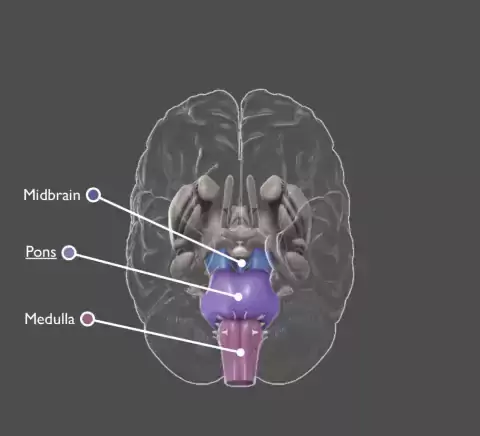MDS 3.0 Item E0200B: Verbal Behavioral Symptoms Directed Toward Others
MDS 3.0 Item E0200B: Verbal Behavioral Symptoms Directed Toward Others
Introduction
Purpose: Verbal behavioral symptoms, such as yelling, cursing, or threatening others, can indicate emotional distress, cognitive impairment, or frustration in long-term care residents. MDS Item E0200B focuses on identifying whether a resident has exhibited aggressive or disruptive verbal behaviors directed at others over the past seven days. Accurate coding of this item helps assess the underlying causes of these behaviors and supports the development of appropriate interventions to ensure the well-being of both residents and staff.
What is MDS Item E0200B?
Explanation: MDS Item E0200B is part of Section E: Behavioral Symptoms. It assesses whether the resident has exhibited verbally aggressive or disruptive behaviors, such as shouting, cursing, or threatening others, during the past seven days. Verbal aggression can be distressing for both the resident and those around them and may be triggered by emotional stress, cognitive decline, or unmet needs. Identifying these behaviors is important for ensuring timely interventions that reduce conflict and improve the resident’s quality of life.
Guidelines for Coding MDS Item E0200B
Coding Instructions: To code MDS Item E0200B, staff must assess whether the resident has demonstrated any verbal behavioral symptoms directed toward others during the past seven days. These behaviors may include:
- Yelling or shouting at others
- Using obscene language or cursing
- Verbally threatening harm
- Screaming in anger or frustration
The coding options are:
- 0 - Behavior not exhibited: The resident has not shown any verbal behavioral symptoms directed toward others in the past seven days.
- 1 - Behavior of this type occurred 1 to 3 days: The resident exhibited verbal behavioral symptoms toward others on 1 to 3 days during the past seven days.
- 2 - Behavior of this type occurred 4 to 6 days: The resident exhibited these behaviors on 4 to 6 days during the past seven days.
- 3 - Behavior of this type occurred daily: The resident exhibited these behaviors every day during the past seven days.
Example Scenario: If a resident yelled or cursed at staff members or other residents on three separate occasions over the past seven days, you would code E0200B as 1 - Behavior of this type occurred 1 to 3 days. If the resident exhibited this behavior on five days, you would code 2 - Behavior of this type occurred 4 to 6 days.
Best Practices for Accurate Coding
Observation: Staff should carefully observe the resident’s verbal interactions with others, noting any instances of aggressive, disruptive, or inappropriate language. Look for patterns, such as whether these behaviors occur in response to specific triggers, such as frustration, confusion, or unmet needs.
Documentation: Record specific examples of verbal behavioral symptoms, including the context in which the behavior occurred and any factors that may have triggered it. Thorough documentation supports the coding decision and helps the care team develop appropriate behavioral interventions to reduce the frequency of these incidents.
Communication: Share observations of verbal behavioral symptoms with the interdisciplinary care team to ensure that any underlying causes, such as pain, discomfort, or emotional distress, are addressed. This may involve adjustments to the resident’s care plan, including behavioral therapy, environmental changes, or medication.
Training: Provide regular training for staff on managing verbally aggressive behavior in residents. Training should cover de-escalation techniques and strategies for minimizing verbal conflict, as well as how to safely and respectfully respond to aggressive outbursts.
Conclusion
Summary: MDS Item E0200B is critical for assessing verbal behavioral symptoms directed toward others in long-term care residents. Accurate coding based on staff observations ensures that these behaviors are recognized and addressed early, leading to the development of effective care plans that promote the safety and well-being of both residents and staff.
Click here to see a detailed Step-by-Step on how to complete this item set.
Reference
This guide is based on the CMS's Long-Term Care Facility Resident Assessment Instrument 3.0 User’s Manual, Version 1.19.1, October 2024, Page E-7.
Disclaimer
Please note that the information provided in this guide for MDS 3.0 Item E0200B: "Verbal Behavioral Symptoms Directed Toward Others" was originally based on the CMS's Long-Term Care Facility Resident Assessment Instrument 3.0 User’s Manual, Version 1.19.1, October 2024. Every effort will be made to update it to the most current version. The MDS 3.0 Manual is typically updated every October. If there are no changes to the Item Set, there will be no changes to this guide.
This guidance is intended to assist healthcare professionals, particularly new nurses or MDS coordinators, in understanding and applying the correct coding procedures for this specific item within MDS 3.0. The guide is not a substitute for professional judgment or the facility’s policies. Additionally, this guide refrains from handling personal patient data and does not provide medical or legal advice.










